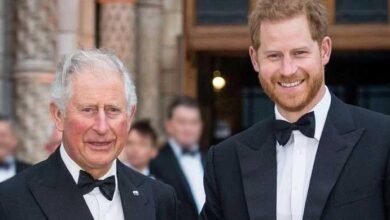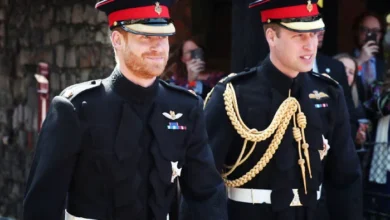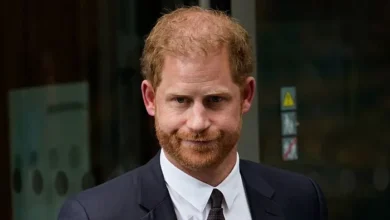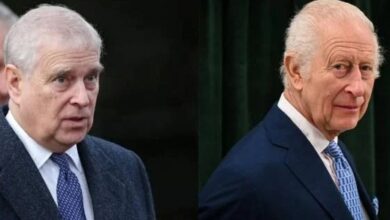Prince Harry Forced to Swallow Bitter Pill as Major Decision Backfires

Prince Harry, the Duke of Sussex, finds himself grappling with the repercussions of his decision to step away from royal duties and his critical remarks about the royal family.
The complexities of his situation have recently intensified as he faces significant personal and family challenges while navigating restrictions imposed on him due to his controversial actions.
One of the most pressing issues for Harry is the restriction on his ability to travel to the UK. Following his departure from his senior royal role in 2020 and the subsequent fallout from his memoir, Spare, the Home Office has downgraded his security arrangements.
As a result, Harry is required to provide 28 days’ notice before arriving in the UK. This stringent rule has impacted his ability to attend family events and support his loved ones during difficult times.
This situation becomes particularly poignant with the passing of his uncle, Robert Fellowes.
Fellowes, who served as the private secretary to Queen Elizabeth II from 1990 to 1999 and was the brother-in-law of Princess Diana, passed away recently.
The funeral is scheduled for next week, and Harry’s ability to attend is uncertain due to the aforementioned restrictions.
The need for advance notice and the current security limitations pose significant barriers for Harry to be present and pay his respects.
In addition to the logistical challenges posed by the security downgrade, Prince Harry faces profound personal and familial difficulties.
A major source of distress is his strained relationship with his father, King Charles III.
Royal author Christopher Andersen has shed light on the ongoing tension between father and son, particularly in the wake of Harry’s candid revelations in Spare.
Harry’s memoir, which includes criticisms of his stepmother, Camilla, and reveals intimate family disputes, has exacerbated tensions within the royal family.
Andersen notes that King Charles is reportedly furious over Harry’s portrayal of Camilla, considering it a “cardinal sin” to publicly disparage a member of the royal family, especially one as close as a stepmother.
This strained relationship has resulted in Charles refusing Harry’s attempts to connect, despite Harry’s evident concern for his father’s health.
The fallout from Harry’s decision to publicly address royal matters and his subsequent departure from royal duties has had a cascading effect on his relationships within the family.
The tensions with King Charles are compounded by the broader implications of Harry’s decision to share sensitive family details in his memoir.
The royal family’s private dynamics, once shielded from public view, have become fodder for media scrutiny, further straining familial bonds.
Harry’s inability to directly support his father during his cancer battle highlights the personal cost of his royal departure and public criticisms.
The estrangement from his family, particularly during such a critical time, underscores the complex and often painful consequences of his choices.
The media’s portrayal of Harry’s situation reflects a mix of sympathy and scrutiny. Public interest in the Duke’s family dynamics and personal struggles continues to drive media coverage, emphasizing the ongoing drama within the royal family.
While some express sympathy for Harry’s predicament, others criticize him for the perceived exacerbation of royal tensions through his memoir and public statements.
The broader implications of Harry’s departure from royal duties and the subsequent fallout underscore the challenges faced by members of the royal family when navigating personal grievances and public responsibilities.
The balance between public scrutiny and private matters is a delicate one, and Harry’s current situation exemplifies the complexities involved.
Prince Harry’s predicament, marked by security restrictions, familial estrangement, and personal struggles, reflects the broader consequences of his decision to step away from royal duties and openly critique the royal family.
As he faces the challenge of attending his uncle’s funeral and supporting his father during a health crisis, the weight of his past decisions and their impact on his family relationships becomes increasingly evident.
The evolving dynamics within the royal family continue to captivate public interest, highlighting the ongoing interplay between personal choices and public life in the context of royal affairs.






